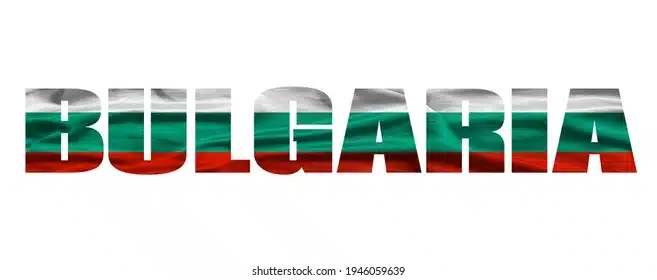Headlines
Bulgaria Population, Official Language And More.

The crucial Battle of Ongal in 680 AD, the peace treaty with Byzantium in 681 AD, and the establishment of a permanent Bulgarian capital at Pliska south of the Danube mark the beginning of the First Bulgarian Empire. The new state brought together local Byzantine population and migrant population as Early Slavs under Bulgar rule, and a slow process of mutual assimilation began. In following centuries Bulgaria established itself as a powerful empire dominating Balkans through its aggressive military traditions which led to development of a distinct ethnic identity.

Bulgaria
THE POPULATION
Bulgaria has a population of approximately 6.9 million people as of 2021. The country has a low population density, with most of the population concentrated in urban areas such as Sofia, Plovdiv, and Varna. The population is predominantly ethnic Bulgarian, with minorities of Turks, Roma, and other groups.
THE LAND MARK
Bulgaria is located in Southeast Europe and shares borders with Romania to the north, Serbia and North Macedonia to the west, Greece and Turkey to the south, and the Black Sea to the east. The country has a diverse landscape that includes mountains, valleys, plains, and coastal areas. Some of the notable landmarks in Bulgaria include the Rila Monastery, Boyana Church, Belogradchik Rocks, and Pirin National Park.
THE OFFICIAL LANGUAGE
The official language of Bulgaria is Bulgarian, which is a member of the Slavic language family. Bulgarian is spoken by approximately 7 million people worldwide. The language uses the Cyrillic alphabet and has several dialects that vary by region.
THE CULTURE
Bulgarian culture is a blend of ancient Thracian, Slavic, and Byzantine influences. Some of the notable cultural traditions in Bulgaria include folk music, dance, costumes, and cuisine. Bulgarian folk music is characterized by complex rhythms and melodies that are often played on traditional instruments such as the kaval (flute), gadulka (stringed instrument), and tupan (drum). Bulgarian cuisine features a variety of dishes that are made with fresh vegetables, herbs, and spices. Some popular Bulgarian dishes include banitsa (a pastry made with cheese and eggs), kavarma (a meat stew), and tarator (a cold soup made with cucumbers and yogurt).
THE ECONOMIC STABILITY
Bulgaria has a developing economy that is largely driven by services such as tourism, information technology, and finance. The country has a low unemployment rate of 4.5% as of 2021. Bulgaria’s GDP per capita was estimated at $10,800 in 2020. The country is a member of the European Union since 2007.
THE GDP
Bulgaria has a developing economy that is largely driven by services such as tourism, information technology, and finance. The country has a low unemployment rate of 4.5% as of 2021. Bulgaria’s GDP per capita was estimated at $10,800 in 2020.
THE CURRENCY
The official currency of Bulgaria is the Bulgarian lev (BGN).
THE FOOD
Bulgarian cuisine features a variety of dishes that are made with fresh vegetables, herbs, and spices. Some popular Bulgarian dishes include banitsa (a pastry made with cheese and eggs), kavarma (a meat stew), and tarator (a cold soup made with cucumbers and yogurt).
MAJOR CITIES
Some of the major cities in Bulgaria include Sofia, Plovdiv, Varna, Burgas, Ruse, and Stara Zagor. Sofia is the capital city of Bulgaria and has a population of approximately 1.2 million people.
MAJOR AIRPORTS AND SEA PORTS
Bulgaria has several airports that serve both domestic and international flights. Some of the major airports in Bulgaria include Sofia Airport, Burgas Airport, and Varna Airport. The largest seaport complex in Bulgaria is the Port of Varna located on the Black Sea’s west coast on Varna Bay along Lake Varna and Lake Beloslav.
SCHOOLS
Bulgaria has a well-developed education system that provides free primary and secondary education to all citizens. The country has several universities that offer undergraduate and graduate programs in various fields such as medicine, engineering, law, and business. Some of the notable universities in Bulgaria include Sofia University St. Kliment Ohridski, Technical University of Sofia, American University in Bulgaria, and New Bulgarian University.





